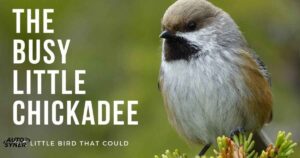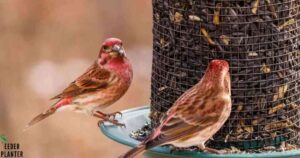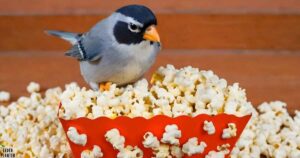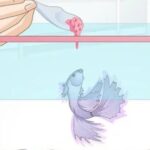Published on October 15, 2024
Mosquitoes are more than just a nuisance; they’re a serious health threat. These tiny terrors spread diseases like malaria, Zika, and West Nile virus, making outdoor activities a risky affair. You’ve tried repellents, sprays, and even those buzzing electronic zappers, but the mosquitoes keep coming back. It’s enough to make you want to stay indoors all summer! But what if there was a natural, eco-friendly solution right in your backyard? Enter the unsung heroes of pest control: birds. These feathered friends might just be the answer to your mosquito woes. Let’s explore Do birds eat mosquitoes? and how you can harness this natural pest control method.
Birds as Mosquito Predators
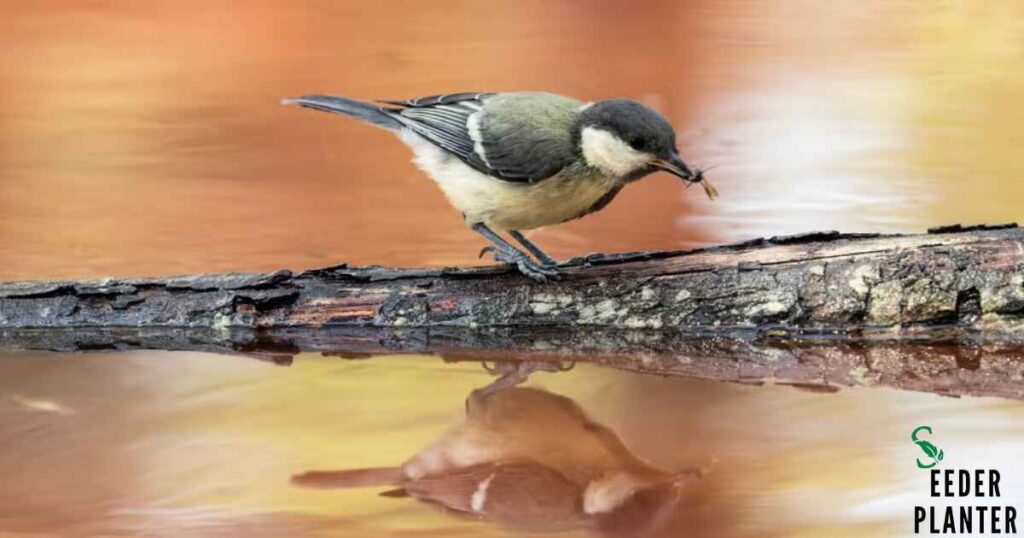
When it comes to natural mosquito control, birds are nature’s aerial assault team. These winged wonders have been keeping insect populations in check for millions of years. Many bird species have evolved to become efficient mosquito predators, swooping through the air with precision to snatch these pesky insects mid-flight.
But do birds eat mosquitoes in significant numbers? The answer is a resounding yes! While not all birds dine on mosquitoes, many species consider these insects a tasty snack. From the agile swallows to the nocturnal nighthawks, various birds play a crucial role in mosquito population reduction. By understanding and encouraging these natural allies, we can create a more balanced ecosystem in our backyards and beyond.
The Science Behind Birds Eating Mosquitoes
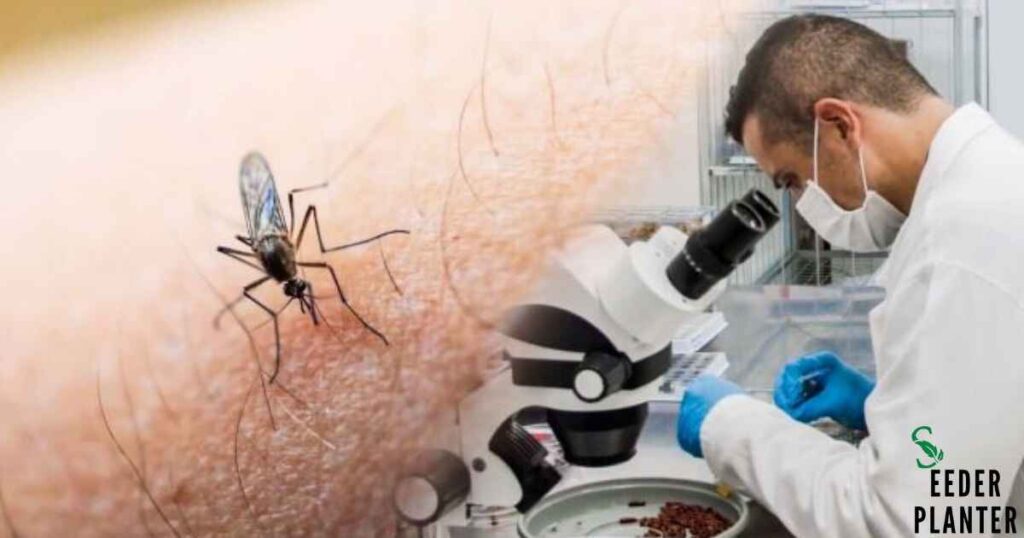
The relationship between birds and mosquitoes is a fascinating example of natural pest control. Birds have several adaptations that make them excellent mosquito hunters. Their keen eyesight allows them to spot tiny insects in flight, while their agile bodies and swift movements enable them to catch prey on the wing.
Many insectivorous birds have specialized beaks designed to snatch insects out of the air. For instance, swallows and martins have wide, gaping mouths that act like nets, scooping up mosquitoes as they fly. The bird species that eat mosquitoes often consume hundreds of insects daily, making a significant dent in local mosquito populations.
Bird Anatomy and Mosquito Consumption
Birds that feast on mosquitoes have evolved specific physical traits to aid in their hunting. Their streamlined bodies reduce air resistance, allowing for quick, agile flight. Many insectivorous birds also have slightly flattened beaks with bristles around the mouth. These bristles act like whiskers, helping the bird sense nearby insects.
Some birds, like flycatchers, have specialized muscles that allow them to snap their beaks shut in a fraction of a second. This rapid-fire action is perfect for catching fast-flying mosquitoes. The birds’ digestive systems are also adapted to process large quantities of insects quickly, allowing them to eat mosquitoes throughout the day.
Mosquitoes in a Bird’s Diet: Quantity and Frequency
The amount of mosquitoes a bird eats can vary widely depending on the species and availability of insects. Some birds, like the Purple Martins, have been observed eating up to 2,000 mosquitoes per day during peak insect seasons. However, it’s important to note that mosquitoes are just one part of most birds’ diets.
Birds typically eat mosquitoes most frequently during dawn and dusk when these insects are most active. During breeding seasons, parent birds may increase their insect consumption to provide protein-rich food for their growing chicks. This timing often coincides with peak mosquito activity, making birds an effective natural control method.
Types of Birds That Eat Mosquitoes
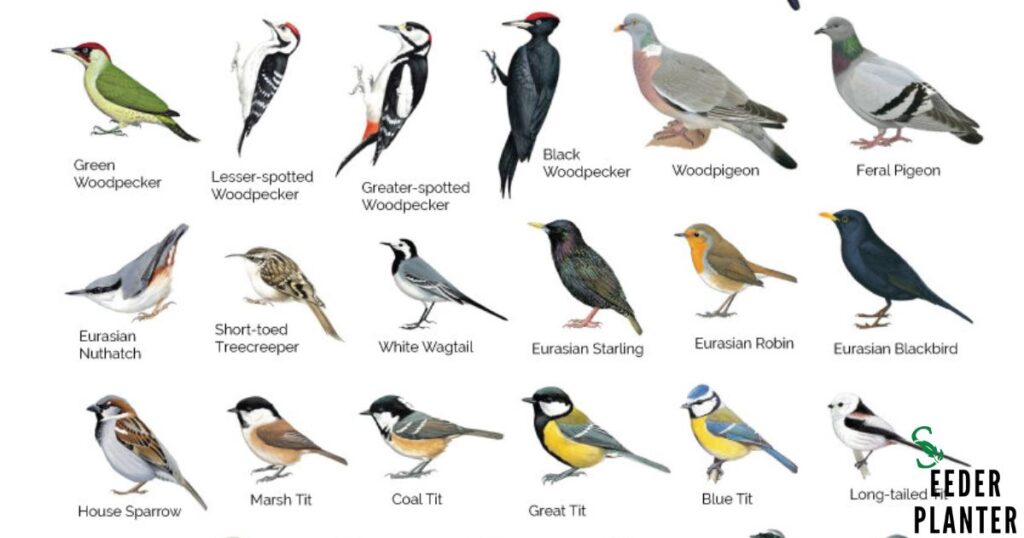
A variety of bird species contribute to mosquito population reduction. Let’s explore some of the most effective mosquito predators in the avian world.
Purple Martins: The Mosquito Slayers
Purple Martins have long been touted as champion mosquito eaters. These large swallows are colonial nesters, often seen in specially designed multi-unit birdhouses. While they do eat mosquitoes, recent studies have shown that mosquitoes make up a smaller portion of their diet than previously thought.
Despite this, Purple Martins still play a role in mosquito control. They’re voracious insectivores, consuming a wide variety of flying insects. Their presence in an area can help maintain a balanced ecosystem, indirectly benefiting mosquito control efforts.
Swallows: Aerial Mosquito Hunters
Swallows are among the most efficient mosquito eaters in the bird world. These agile flyers spend much of their time in the air, catching insects on the wing. Barn Swallows, Tree Swallows, and Cliff Swallows are particularly adept at mosquito control.
Swallows have a unique hunting technique. They fly with their mouths open, scooping up insects as they go. This method allows them to catch multiple mosquitoes in a single pass. During breeding season, a pair of swallows can consume up to 6,000 insects per day, a significant portion of which may be mosquitoes.
Nighthawks and Nightjars: Nocturnal Mosquito Eaters
When the sun sets and most birds retire for the night, nighthawks and nightjars take over mosquito patrol. These nocturnal birds are specially adapted to hunt in low light conditions. Their large eyes and wide mouths make them efficient mosquito predators during the evening hours when mosquitoes are most active.
The Common Nighthawk, in particular, is known for its mosquito-eating prowess. These birds can often be seen swooping and diving through the air at dusk, their distinctive “peent” calls echoing as they hunt. Whip-poor-wills, another nightjar species, also contribute to nighttime mosquito control.
Chickadees and Titmice: Tiny but Mighty Mosquito Predators
Don’t let their small size fool you; chickadees and titmice pack a punch when it comes to mosquito control. These little birds are constantly on the move, searching for insects among leaves and branches. While they may not catch mosquitoes in mid-air like swallows, they excel at finding and eating mosquitoes resting on vegetation.
Black-capped Chickadees and Tufted Titmice are common backyard visitors in many parts of North America. By encouraging these birds to visit your yard, you’re enlisting a year-round mosquito control team. They’re particularly helpful in controlling mosquito populations in wooded or shrubby areas.
Other Notable Mosquito-Eating Birds
Several other bird species contribute to natural mosquito control. Warblers, with their small size and quick movements, are adept at catching mosquitoes and other small insects. Flycatchers, as their name suggests, are expert aerial insect catchers. Even some woodpeckers will eat mosquitoes, especially when foraging for insects on tree trunks and branches.
Waterfowl and wading birds also play a role in mosquito control. Ducks, geese, and herons often feed on mosquito larvae in ponds and wetlands, helping to reduce mosquito populations before they even take flight.
How Birds Keep Mosquito Populations Under Control
Birds employ various strategies to help control mosquito populations. Their methods of mosquito population reduction go beyond simply eating adult mosquitoes.
Direct Predation: Catching Mosquitoes in Flight
The most obvious way birds eat mosquitoes is by catching them in flight. Swallows, martins, and nighthawks are masters of this technique. They use their exceptional flying skills and wide mouths to snatch mosquitoes out of the air. This direct predation can significantly reduce the number of adult mosquitoes in an area.
Some birds, like flycatchers, employ a “sit-and-wait” strategy. They perch on a branch, watching for flying insects, then dart out to catch them mid-air. This method is particularly effective for catching mosquitoes that are active during the day.
Larvae Control: Birds That Feed on Water Sources
Many birds contribute to mosquito control before the insects even take flight. Ducks, geese, and wading birds often feed in shallow water where mosquito larvae develop. As they forage for aquatic plants and animals, they inadvertently consume mosquito larvae, reducing the number of mosquitoes that reach adulthood.
Some songbirds, like swallows, have been observed skimming the surface of water to catch emerging mosquitoes. This behavior not only removes adult mosquitoes but also disrupts the mosquitoes’ breeding cycle.
Indirect Control: Disrupting Mosquito Breeding Cycles
Birds can also help control mosquito populations indirectly. Their presence in an area can deter mosquitoes from breeding. Some birds, like Purple Martins, are known to be territorial. They may chase away mosquitoes and other insects from their nesting areas, reducing the local mosquito population.
Additionally, birds that eat other insect predators of mosquitoes, like dragonflies, can sometimes lead to an increase in mosquito numbers. This complex interplay highlights the importance of maintaining a balanced ecosystem for effective natural mosquito control.
Attracting Mosquito-Eating Birds to Your Yard
Encouraging mosquito-eating birds to visit your yard is an effective and eco-friendly way to reduce mosquito populations. By creating a bird-friendly environment, you can enlist these natural pest controllers to help keep mosquito numbers in check.
Creating a Bird-Friendly Habitat
To attract birds that eat mosquitoes, start by providing the essentials: food, water, and shelter. Plant native trees, shrubs, and flowers that produce seeds, berries, or nectar. These plants will also attract insects, providing a natural food source for insectivorous birds.
Water features like birdbaths or small ponds can attract a variety of birds. Ensure the water is clean and shallow, with a gentle slope for easy access. Moving water, like a small fountain or dripper, can be particularly attractive to birds and less hospitable to mosquito larvae.
Providing Food Sources for Insectivorous Birds
While birds that reduce mosquito populations primarily eat insects, providing supplemental food can encourage them to stay in your yard. Offer a variety of foods to attract different species:
- Black oil sunflower seeds for chickadees and titmice
- Mealworms for bluebirds and warblers
- Suet for woodpeckers and nuthatches
- Nectar feeders for hummingbirds
Remember, the goal is to supplement their natural diet, not replace it. Birds will still hunt for insects, including mosquitoes, even when feeders are available.
Installing Birdhouses and Nesting Boxes
Providing nesting sites is crucial for attracting and retaining mosquito-eating birds. Different species have different nesting preferences:
- Purple Martins prefer multi-unit houses or gourds placed in open areas
- Swallows may use open-fronted nest boxes or mud-cup supports under eaves
- Chickadees and titmice like small boxes with entrance holes about 1 1/8 inches in diameter
- Woodpeckers need larger boxes with entrance holes sized for their species
Place birdhouses and nest boxes away from feeders and in locations safe from predators. Regular cleaning and maintenance of these nesting sites will encourage birds to return year after year.
Combining Bird Control with Other Natural Mosquito Repellents
While birds eat mosquitoes and help control their populations, they’re most effective when combined with other natural mosquito control methods. An integrated approach can provide comprehensive protection against these pesky insects.
Plant-Based Mosquito Repellents
Certain plants are known to repel mosquitoes naturally. Planting these in your yard can complement the mosquito control provided by birds:
- Citronella grass
- Lavender
- Marigolds
- Rosemary
- Lemon balm
These plants not only help repel mosquitoes but can also attract beneficial insects that birds eat. This creates a balanced ecosystem in your yard, supporting both bird species that eat mosquitoes and other natural mosquito control methods.
Water Management for Mosquito Control
Proper water management is crucial for effective mosquito control. Mosquitoes breed in standing water, so eliminating these breeding sites can significantly reduce mosquito populations. Here are some tips:
- Remove any containers that collect water, such as old tires or buckets
- Clean gutters regularly to prevent water accumulation
- Change birdbath water every few days
- Use mosquito dunks in ponds or water features that can’t be drained
By reducing mosquito breeding sites, you make it easier for birds to keep the remaining mosquito population under control.
The Ecological Impact of Birds Eating Mosquitoes
The relationship between birds and mosquitoes is part of a complex ecological web. Understanding this relationship can help us appreciate the importance of birds that reduce mosquito populations and their role in maintaining ecological balance.
Benefits to Human Health and Comfort
By eating mosquitoes, birds contribute significantly to human health and comfort. Mosquitoes are vectors for numerous diseases, including malaria, dengue fever, and West Nile virus. By reducing mosquito populations, birds indirectly help lower the risk of these diseases.
Moreover, fewer mosquitoes mean more enjoyable outdoor activities. Whether it’s a backyard barbecue or a hike in the woods, the presence of mosquito-eating birds can make these experiences more pleasant by reducing the number of biting insects.
Read This Blog : How to Plant Weed Seeds: A Complete Guide for 2024
Balancing Bird Populations and Mosquito Control
While birds are effective mosquito predators, it’s important to maintain a balanced approach to mosquito control. Overreliance on any single method, including bird predation, can lead to unintended consequences.
For example, drastically increasing Purple Martin populations in an area might reduce other bird species that also contribute to mosquito control. Similarly, using chemical insecticides to control mosquitoes can harm the birds that feed on them.
The key is to promote biodiversity and create habitats that support a variety of mosquito-eating birds and other beneficial insects. This approach ensures a more stable and effective long-term solution to mosquito control.
Myths and Facts About Birds Eating Mosquitoes
There are several misconceptions about birds and their role in mosquito control. Let’s separate fact from fiction to better understand how birds eat mosquitoes.
The Purple Martin Myth: Setting the Record Straight
One persistent myth is that Purple Martins can eat thousands of mosquitoes per day, making them a cure-all for mosquito problems. While Purple Martins do eat mosquitoes, they’re not the mosquito-control panacea they’re often made out to be.
Studies have shown that mosquitoes make up only a small percentage of a Purple Martin’s diet. These birds are generalist insectivores, eating a wide variety of flying insects. They’re more likely to eat larger insects like dragonflies, which are themselves mosquito predators.
This doesn’t mean Purple Martins aren’t beneficial. They still contribute to overall insect control and add beauty and interest to our environments. But it’s important to have realistic expectations about their role in mosquito control.
Also Read This Blog : Can Ducks Have Sunflower Seeds? A Complete Guide to Feeding Ducks
Do All Insectivorous Birds Eat Mosquitoes?
Not all insect-eating birds focus on mosquitoes as a primary food source. Many bird species that eat mosquitoes do so opportunistically, as part of a varied diet that includes many types of insects.
Factors like the bird’s size, hunting style, and habitat preferences influence whether they’re likely to eat mosquitoes. Smaller birds like swallows and warblers are more likely to target mosquito-sized prey, while larger insectivores might focus on bigger insects.
It’s also worth noting that some birds, like hummingbirds, are often mistakenly thought to be major mosquito eaters. While hummingbirds do eat small insects, they primarily feed on nectar and are not significant mosquito predators.
Frequently Asked Question
Let’s address some common questions about Do birds eat mosquitoes? and their role in natural pest control.
What kind of bird eats the most mosquitoes?
While it’s difficult to crown a single champion mosquito-eater, swallows are generally considered among the most effective mosquito predators. Barn Swallows, Tree Swallows, and Purple Martins are known for their mosquito-eating abilities.
Nighthawks and nightjars are also significant mosquito consumers, especially during evening hours when mosquitoes are most active. These birds are adapted to catch insects on the wing, making them efficient mosquito hunters.
Will attracting birds completely eliminate mosquitoes from my yard?
While birds that eat mosquitoes can significantly reduce mosquito populations, they’re unlikely to eliminate mosquitoes entirely. Mosquito control is most effective when birds are part of an integrated pest management approach that includes:
- Eliminating standing water
- Using mosquito-repelling plants
- Maintaining a diverse ecosystem that supports various mosquito predators
Birds are a valuable part of natural mosquito control, but they work best in conjunction with other methods.
How do mosquito-eating birds compare to bats in mosquito control?
Both birds and bats play important roles in natural mosquito control, but they operate at different times. Many mosquito-eating birds are active during the day, while bats take over at night.
Bats are often touted as mosquito-control champions, with some species capable of eating hundreds of mosquitoes per hour. However, like birds, bats don’t exclusively eat mosquitoes and will consume a variety of insects.
What kind of bird eats the most mosquitoes?
Swallows, particularly Barn Swallows and Tree Swallows, are generally considered among the most prolific mosquito eaters. They are agile flyers that catch insects mid-air and can consume hundreds of mosquitoes daily. Nighthawks and nightjars are also significant mosquito predators, especially during evening hours when mosquitoes are most active.
What eats mosquitoes the most?
While birds are significant mosquito predators, bats are often cited as consuming the most mosquitoes. Some bat species can eat hundreds of mosquitoes per hour. However, both birds and bats consume a variety of insects, not just mosquitoes. Other notable mosquito predators include dragonflies, fish (in aquatic environments), and certain insects like predatory mosquitoes.
What is a natural mosquito eater?
Natural mosquito eaters include a variety of animals:
- Birds: Swallows, nighthawks, Purple Martins, chickadees
- Bats: Many species are voracious insect eaters
- Fish: Mosquitofish, goldfish, koi (eat mosquito larvae)
- Insects: Dragonflies, damselflies, predatory mosquitoes
- Amphibians: Frogs, toads, salamanders
- Reptiles: Some lizards and geckos
These natural predators help keep mosquito populations in check without the use of chemicals.
What would happen if all mosquitoes died?
The complete eradication of mosquitoes would have complex ecological consequences:
- Reduced disease transmission to humans and animals
- Loss of food source for many species (birds, bats, fish, etc.)
- Potential disruption of pollination (some mosquito species are pollinators)
- Possible ecosystem imbalances in aquatic environments
- Unknown ripple effects through food webs
While mosquito control is important for human health, the complete elimination of all mosquito species could have unforeseen negative impacts on biodiversity and ecosystem functioning.
Conclusion
Nature’s aerial squad, our feathered allies, wage a silent war against the tiny terrors we call mosquitoes. From the acrobatic swallows to the nocturnal nighthawks, these winged warriors keep buzzing battalions at bay.
But let’s not put all our eggs in one nest – birds are just one weapon in our anti-mosquito arsenal. Combine their voracious appetites with smart water management, mosquito-repelling plants, and you’ve got a formidable defense.
Remember, it’s not about wiping out mosquitoes entirely (sorry, dreamers!), but achieving a healthy balance. So, next time you hear a chirp or see a swoop, give a little nod to these unsung heroes. They’re not just pretty singers; they’re our frontline defenders in the great outdoors. Now that’s something to tweet about.

I am Alexander James, a seasoned professional with 4 years of expertise, brings passion and skill to every project. Elevate your experience with my knowledge and creativity.
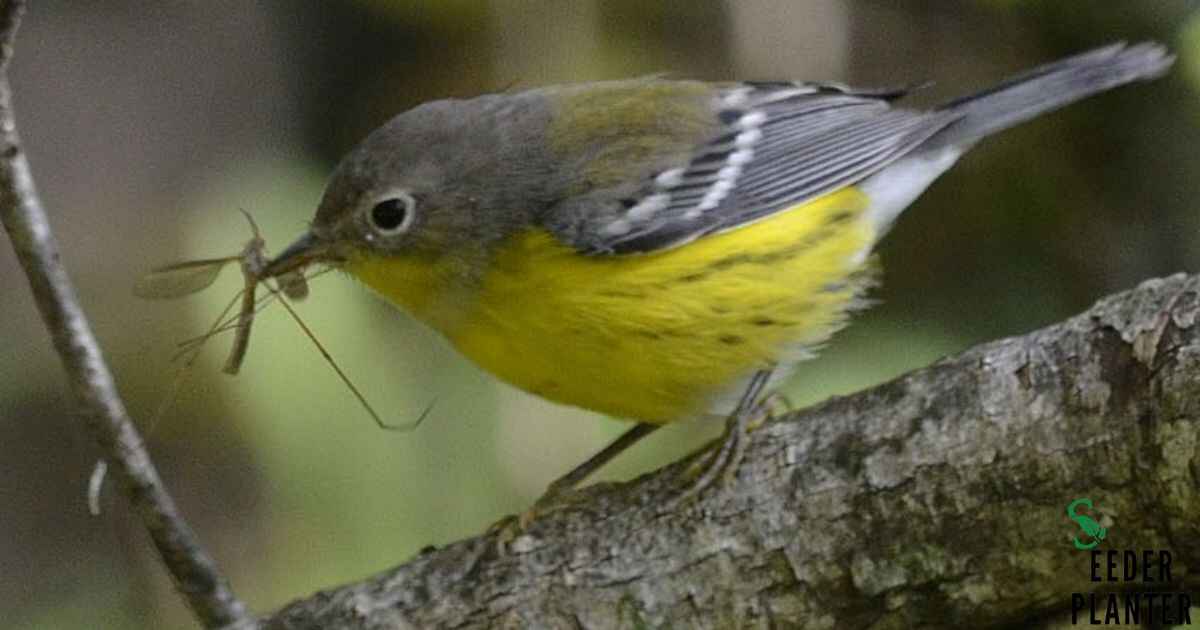

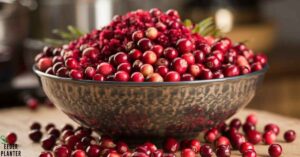
![Hollyhock Seeds: The Complete Guide to Success [2024]](https://seederabout.com/wp-content/uploads/2024/10/Hollyhock-Seeds-The-Complete-Guide-to-Success-2024-300x157.jpg)
